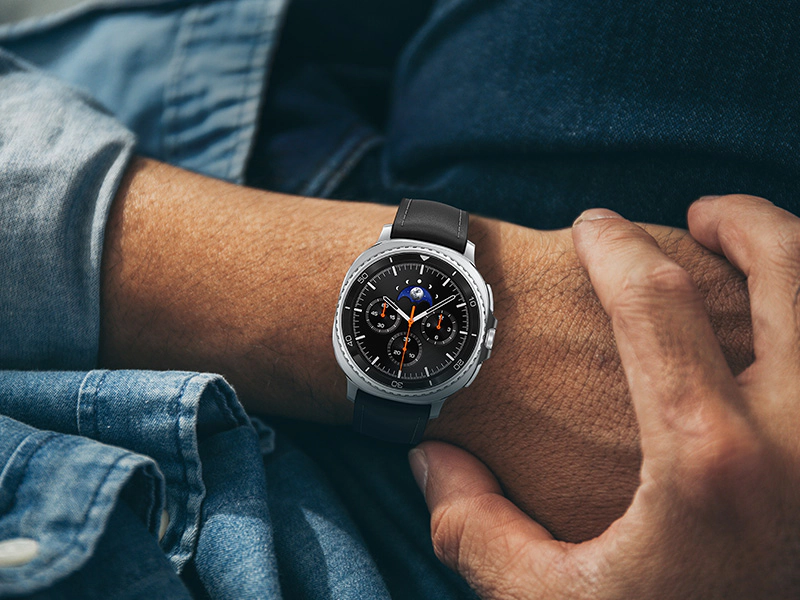Copyright gq

On his YouTube channel, The Needle Drop, self-proclaimed music nerd Anthony Fantano has posted over 4,000 videos and accumulated more than 3 million followers over 16 years. His opinions on music are well-documented and widely debated, but his diet, exercise, and wellness routine only recently entered the conversation, when Fananto, who recently turned 40, posted photos of himself competing in the Spartan Race obstacle course competition. has a long familial history with the gym and has been very meticulous about his diet since he was a teenager. Posting near-daily videos about music ranging from Brazilian pop to Deftones to Earl Sweatshirt, Fantano has a busy schedule and weathers constant attacks online from stans and other music zealots. Sticking to a fairly regimented diet helps him save time, while physical and mental exercise (i.e. therapy) helps him stay serene amidst a storm of people getting mad at him about Wet Leg. In the Spartan Race, which he completed with no special training in October, Fantano repped a now somewhat obscure country singer whose heyday was in the ’70s and ’80s. Music remains his business and his passion; don’t expect Fantano to launch a fitness channel or make a bid for the manosphere. GQ: What was the impetus for getting into fitness and having more of a focus on your body and your well-being? Anthony Fantano: It actually goes back a really long time. My father was a competitive powerlifter. During that time, and for a handful of years afterwards, he was a coach for powerlifters and for bodybuilders. So, as soon as I was old enough, he had me in the gym with him. It just made sense to do while I was there—like, I might as well be doing something to occupy my time. He had me learning proper form with bench, squat, and deadlifts. It was a lot of strength training, but there wasn't really a whole lot of focus on competitive advancement or diet or anything like that. Honestly, with the way that he trained the people who he was working with, the less you thought about it the better. If you wanted to succeed and train under him without having your life turned into a living hell, you just did what he said. Powerlifting is something that you can only do competitively for a certain amount of time before it wears on your body in a certain way, or you run into some injury at some point. At his peak, we're also talking about an era where steroids were legal. Then, in the midst of that, they became illegal. So, we're talking about a massive paradigm shift in terms of the way the competitive scene was looking. I've stuck with that training for years. But I think my health and the way that I look at fitness personally started to take a different turn when I started to contend with how overweight I was as a teenager. Even though I was strong and I had listened to all of my dad's advice, I didn't really know much of anything about diet outside of, “Well, if you want to lift as much as you possibly can, you should probably be eating as much as you possibly can.” I started to think and worry more about being as overweight as I was, because even though I was strong, I didn't feel great. When I was 16 or 17, not really doing anything strenuous—maybe I was sore from a workout earlier in the week, I don't know—I forget specifically when it happened, but I threw my back out. I was bedridden for a few days. I felt miserable the whole time and was reflecting on the fact that I was a teenager, I should be able to get out of bed, move around, and feel good in my body. These are supposed to be my peak years physically. What's going on? When my back felt better and I finally did get the ability to move around again without any pain or soreness, I had decided right then and there I needed to lose the weight, which meant limiting myself to three meals a day, watching the amount of fat input, doing a lot of walking, just drinking water (no soda), and limiting myself to a lot of soups, sandwiches, that sort of thing. I had gone from 310 pounds to 175 pounds in about a year and a half. This is still when you’re in high school? Yeah. My build was really funny, because my upper body, my arms, and my face just got real, real, real skinny, but my legs were massive from carrying around all that weight for so long. To this day, I excel most at squat. Out of all my muscle groups, my legs have always historically been the strongest. After I lost all the weight, I actually did take a break from weight lifting. I had found that the more I was lifting weights, especially after a workout, I just get hungrier. I was trying to focus so much on controlling my cravings and just starting to eat within more normal parameters. Lifting super heavy was making doing that difficult at the time. My dad did have a lot of advice in terms of what I needed to do, or what I should be eating in order to lift heavy, but he's no weight loss expert for sure. I mostly needed to figure that out on my own, without even doing any calorie counting or anything like that. This is the early-2000s, so it's not like I'm going on the internet finding out about this stuff. I'm just doing it just based off of like, I think I should just be eating less. Yeah, we were guessing. Right. I was just doing it purely off of intuition. As I transitioned from high school into college, I got more curious about vegetarianism. More information was becoming available in terms of diet and exercise online. I was reading more about vegetarianism. I committed to that and had a bit of a turbulent start getting into it. But eventually, I learned to cook for myself more. Once I graduated college and I had more control over what I was eating because I was traveling less, commuting to school on a regular basis, and there were more options available—because it was a tough time to start going vegetarian around the period that I did, in terms of food options outside of the grocery store and stuff—I was able to pretty much fully go vegan. I've pretty much been vegan, for the most part, since about 2007. What does a normal day of eating look like for you? Do you cook every meal for yourself? I wouldn't say every meal is cooked, unless it's something that I can cook a bunch of in advance and then have saved. If I can cook a bunch of pancakes, I'll have those for breakfast and save them. But, these days I've been on an oatmeal and granola kick. I'll throw some granola in a bowl with some Grape-Nuts, some peanuts, some ground flaxseed, and either almond milk, oat milk, or soy milk, depending on what I have. I'll throw some raisins in there too. I won't eat that until much later in the morning or maybe even around lunch, because I have been doing a lot of intermittent fasting in the past few years. I just try to close the window of time in which I am eating, just because I don't personally feel all that good and I don't see the sense in eating first thing when I wake up. I'd much rather spend that time, if I am consuming anything, drinking either black coffee or tea. Not weighing myself down the moment that I get up, and instead just waiting until I'm feeling actually really, really genuinely hungry. What's a normal dinner look like? I do cook a pretty wide range of things, even from scratch. I used to work at a pizza place for a decade, so I'm always making dough at home, making pasta, and making sauce from scratch. There's a pretty wide range of high-protein pastas out there these days. I can either bake up and throw a seitan sausage in there, or there's another thing that I like to do. You can buy these giant bags of textured vegetable protein. I'll just take a cup of that, take a cup of boiling water, and it just reconstitutes in 10 minutes. In whatever bowl or Tupperware I have it reconstituting, I'll throw in a bunch of salt, pepper, paprika, other spices, and then I'll just saute it in a cast iron for 10 or 15 minutes. Once it's cooked down, you can just throw it in there with the sauce that you made, and you have a pasta dish right there. I'll throw in some broccoli or other vegetables or something that I've sauteed with it. I also like to cook three bean chili. I make hummus at home. Over the pandemic, I taught myself to make hummus and falafel, because one of my favorite things to eat out as a vegan—and one of the most popular options around—is falafel. However, there's a lot of terrible, mediocre ass falafel out there. I've spent a lot of time honing my recipe to get it just right. So I'll make a falafel too. Sometimes I'll cook some tofu scramble with potatoes, that sort of thing. Lasagna as well. It's a lot of Italian dishes, just because that's how I was raised. Also, tempeh with rice. I like tempeh. If I need some extra calories, maybe I worked out that day or something or I'm feeling a little hungry, I make peanut butter and different types of nut butters at home. I do want to ask about Spartan Racing, because I am completely unfamiliar. Honestly, it's not even anything I personally feel expert on. My partner and some of her friends, occasionally, have done these in the past. I've always overheard about it, and this year, they were just like, “Oh, do you want to do one with us?” I was like, “Yeah, sure. Why not?” In the lead up to that, I felt pretty confident going into it, even without having put much thought into it. In the past I've had stints where I was really into running and was running for miles at a time. I knew there were going to be a bunch of obstacles, she had told me about most of them beforehand. I was like, “I feel like I can manage most of those.” I do have a pretty regular workout regimen still to this day. I'm benching on a regular basis. I am squatting on a regular basis. I'm doing a lot of pull-ups and a lot of back and bis as well. I have not been into it much lately—because the gym membership was proving to be pretty expensive over time—but for about a year and a half, almost two years, I was really getting into indoor rock climbing. As a result, I was like, “I could pull myself up over whatever.” You know what I mean? https://x.com/theneedledrop/status/1979606484561600595 I got this. Exactly. I've done that a bunch of times over some pretty treacherous wall routes doing bouldering and stuff. I think I could manage that. The obstacles didn't sound too scary. I was like, “Let's just go for it and see how it goes, without putting too much thought into it beforehand at all, just see how I fare.” I thought the ultimate test to whether I'm in decent health is if I get through it moderately successfully without passing out. There's people I see online who might have a friend group of theirs who are like, “Yeah, we're going to do 5K.” It's like, “Do you want to do a 5K?” Yeah, I'm going to do it, but I'm not going to train at all, just to prove to you guys that you don't even need to think about it or train for it. That was pretty much me. I was able to run for a good chunk of it. I think I could have gone pretty far with the running, surprisingly, despite it not being a thing that I do too often. I was finding myself doing pretty well with the jog I was on, despite the fact that a lot of it was going through the woods. But, it wasn't until I started hitting more obstacles and my heart was racing, I was going from that immediately back into running and that was wearing me down really quickly. If I just had one to worry about or the other, it would have been manageable. Having the running be interrupted by the obstacles was putting me in a position where I was like, “I'm going to do one or I'm going to do the other. I gotta choose.” I was able to make it through all of them except for the traditional, straight-up rope climb. Oh, like PE-style? Yeah. I know there's a way that you can get your legs into it and wrap the rope around your legs. There's definitely a lower body component to it that unless you've done it before, you don't know explicitly. I didn't know how to manage it, so I was like, “Whatever.” Everything else, I was able to do. The thing is, my dad, when he was at his peak of competitive strength, he was benching 600 pounds. He was squatting 1,000 pounds. He was deadlifting hundreds and hundreds and hundreds of pounds. But, on multiple occasions when I was telling him about what I was doing in the gym, he was like, “Even when I was at my peak, I could never do a pull-up, not a single one.” I was like, “Man, you can have so much strength, but if you can't control your own body weight fully..” You know what I mean? Yeah, you’re kind of useless. There’s a weakness there. Maybe you can still bench 500 if you want to, but if you can't pull your own body up, there's something to that. I feel more comfortable in my own body knowing that I can do that, than I would if I woke up and I was like, “Yeah, I could bench 500 pounds.” Did you listen to music during the Spartan Race? No, I was totally music free. Some people, if they run the whole thing, they're getting through in a little over an hour. But it took me a while to get through the entire thing, just because I was really taking my sweet time. On top of it, from what I understand, it was one of the more gnarly Spartan Races. I guess at the one that we had, there's more mud. There's even a thing that you have to submerge yourself in and go under. It was a whole water obstacle. Oh, so headphones would complicate things. Exactly. We had to totally submerge ourselves in mud. So they've got mud, barbed wire, water obstacles, stuff like that. I passed through, but headphones would have definitely complicated things. What do you normally listen to in the gym? A lot of the time, I’ll be listening to stuff that I got to review, or I’ll be listening to a podcast. But if I'm just looking for a jolt, it'll be something loud. I've been enjoying the new Hives album. That’s been sounding pretty good when I'm working out, or maybe a Westside Gunn record or something like that, some Griselda stuff, or some Wu-Tang, that sort of thing. I have one more question about the Spartan Race. Who was the woman on your shirt? That’s Barbara Mandrell. She's a country singer. I picked up that shirt, I think, when I was in college. I got a lot of awesome ass shirts during that time period, and that is one of my favorite shirts. The material’s really good, I think the print is really funny. There are a few Barbara Mandrell songs that I like for anybody. I recommend the song “I Was Country When Country Wasn't Cool,” it’s this cute song about how she was into country music before it had a trendy commercial moment. I wanted to ask you about the mental side of the health equation, as someone who lives a pretty public-facing life on the internet. I'm sure you have a different take on what people say about you now than you did five, 10, or 15 years ago. I don't think I would be where I am if it wasn't for my exercise regimen. It's a great outlet, a great way to blow off steam. On top of it, it's just a great way for me to take the edge off of stress that I might be dealing with as a result of dramas that are coming out of my job, opinions that I have, or whatever crap. On top of it, there's the added fact that I am on camera all the time. I'm always confronting and always contending with the way that I look and the way other people perceive me all the time. I think it's only to my benefit to be in good shape. Personally, I am a little ADHD. It is something that I talk to my therapist about regularly. Also just to remind people, the exercise and the physical fitness stuff is important, but it's not a replacement for proper mental health. If I am working out—and getting some of that excess energy or need for stimulation out through physically moving my body—it only helps me be able to do what I do better. I find that if I'm not working out, or if I haven't worked out in a while, then I get more restless and it becomes more difficult to lock in. I have some quick hitters about some stuff that's in the zeitgeist right now. The first one is protein maxing. I mean, I feel like what protein maxing means for me is probably not the same that it means for other people, given that I am vegan. A lot of the time I am protein maxing just to get to a level of protein that other people would think is nothing. You have to feel normal while they're trying to eat six eggs. I am never going to get to that point. I'm trying to protein max just to feel good. I have been on regimens where, at least for my vegan diet, I am eating a lot of protein. I'm eating tons of lentils, tons of tofu, eating a few extra protein bars, making sure I'm getting the nut butters in, so on and so forth. But after I'm done, do I actually physically feel better? The amount of eating that I have to do to get to that point, I usually don't. I experiment. I try new stuff. If I hear about something and it seems like it's within my means to try it, I'll try it. If it's something that I don't end up feeling great physically afterward, I typically give it up. Do you have any thoughts on, or experience with, Zyn? Do you ever tap into the manosphere, like the Joe Rogan, RFK Jr. side of town? There were some people saying after I posted that Spartan thing, “Here it comes. Anthony to the manosphere, giving men advice.” Personally, no. I find a lot of those guys to be complete clowns. Maybe some of them are giving some good physical fitness advice, but often it does get wrapped up in a lot of weird social points of view around women and success. The lane that I'm in currently, music is pretty great. I don't really have any reason to give up music. It would be an insane pivot. Not only would it read as weird, but music's going pretty well. Music's very popular. Everyone likes music! There's always new music to talk about. I just shudder at the thought of all the things that I would need to pay attention to and be up-to-date on if I were trying to legitimately be a manosphere person. You know what I mean? In Real-Life Diet, athletes, celebrities, and other high performers talk about their diet, exercise routines, and pursuit of wellness. Keep in mind that what works for them might not necessarily be healthy for you.



